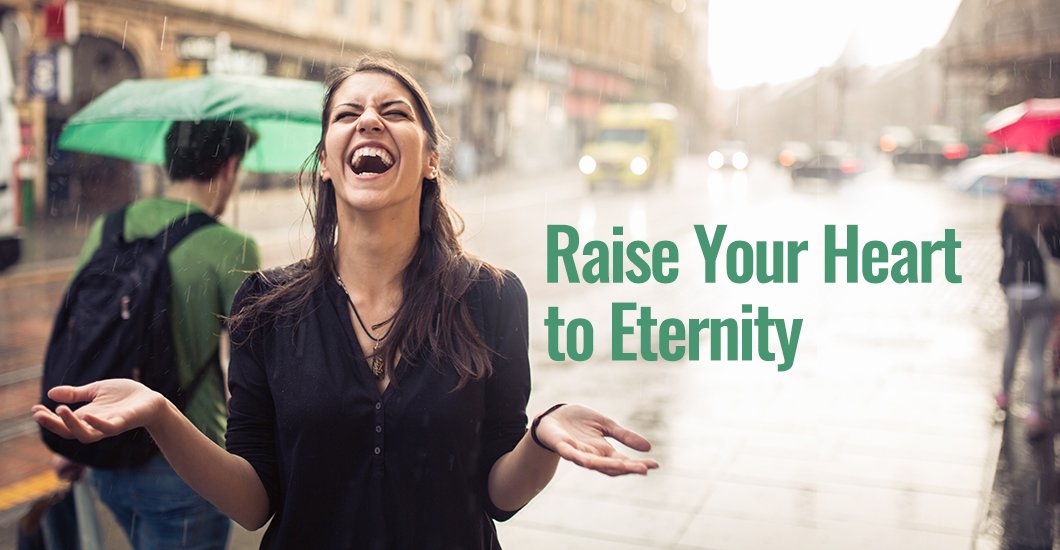Home/Evangelize/Article
Trending Articles
Shortcut to a Spiritually Rich Life
You may be familiar with the story of a father and son who traveled with a donkey. Shortly after they began their journey, a bystander commented, “What kind of people are they! They have a perfectly fine donkey, but instead of riding him, they are simply walking beside him!” When they heard this, the father and son thought that it was a good idea. The father said to his son, “You should ride the donkey. Why tire yourself?” The son jumped on the donkey and they continued on their journey.
After going only a short distance, another bystander said, “What an arrogant son this is! See how he is having his aged father walk while he is comfortably riding on a donkey!” As soon as he heard this, the son jumped down from the donkey and made his father ride instead. But they had not gotten far when the next set of comments came, “What a hard-hearted father! He has his son walk while he proudly rides on the donkey!”
The father then encouraged his son as well to ride on the donkey. While they rode together, an onlooker saw them and cried out, “What cruelty toward an animal! Look at that poor, silent donkey, unable to bear the weight of both of these people. Surely that donkey will collapse and fall down any time now! The father and son thought that this may be true and immediately got off the donkey.
They discussed the situation amongst themselves. “Now what should we do? No matter what we do, people don’t seem to agree with what we have decided.” After much discussion, they came up with an idea. They tied the donkey on bamboo poles and carried the poles on their shoulders. When people saw them next, they ridiculed them, “Here are two donkeys hauling another donkey!”
Does the story of this father and son resonate in your life? When we direct the path of our lives based on what other people say, our lives will be wasted. Humans have the capacity to turn any positive action into a seemingly negative one, and to turn any harmful decision into a seemingly helpful one. So, do not give undue importance to what people think of you and your decisions. Rather, concern yourself with another question, “What is God thinking of me?”
One reason behind our hurts, weaknesses, and frustrations is the opinions of others. When we give extensive attention to the talk of the world, we become lethargic. But when we turn to the Word of God, His words fortify us. When we aim for what pleases God, we can grow as a Christian. “Am I now currying favor with human beings or God? Or am I seeking to please people? If I were still trying to please people, I would not be a slave of Christ” (Galatians 1:10).
Prayer
Lord, reveal to me the time and energy I spent pleasing people. Give me the grace to do only what pleases You. Fill me with fear of You so that I may never be fearful of the hurtful words and aversions of others. Lord God, grant me the wisdom to discern what it is that You are trying to tell me. Let your Word rule upon me. Amen.
Chevalier Benny Punnathara has authored many books on the faith life which have been translated into several languages. In 2012, then Pope Benedict XVI awarded the title of ‘Chevalier’ to Punnathara for his outstanding contributions to the Catholic Church and society. In addition to being the founder of Shalom ministries, Punnathara serves as the Chairman of Shalom Media. He and his wife, Stella, an author and speaker, live in India along with their two children.
Related Articles
Every day people drive their cars and there is nothing unusual about it. But if anyone meets with an accident, it turns into a matter for the news. Headlines appear in newspapers, posts in social media instigate discussions, and everyone talks about it. It is quite ordinary when a husband and wife live together. But once they get divorced, it becomes the talk of the town. Soon enough, this news becomes a subject of gossip within the community. Nowadays, we often find the news of murder, violence, fraud, corruption, and other vices getting more attention than anything that showcases the virtues of humanity. A disproportionate importance is given to the actions of evil in news media and even in our conversations. All this has a negative effect. The one who is constantly fed disturbing stories of evil will unknowingly slip into the thought that the world is full of evil and that most of the people in it are wicked. This thought can destroy every desire to grow in virtue and disappointment can sink deep in the mind. This disappointment turns into hopelessness in life and with the world, and may eventually cause one to surrender to evil without ever putting up a fight. Make no mistake—this is the well thought out strategy of satan. He cunningly twists that which is virtuous and projects only evil, and thereby makes the world seem to think that he has the upper hand. But the truth is, there are still lots of virtues in the world and we are surrounded by virtuous individuals. Even though satan has conquered many hearts, the Kingdom of God is growing fast. Many people around us shed His light of holiness, love, and truth. We are not alone. The Lord is doing everything for us to rejoice and hope in. We should open our eyes to His great works, we should speak about them and write about them. By doing this, our joy and the joy of the world will only increase. Virtues which lay hidden will be shown to the whole world. Gossip is a sin which hinders the light of God. With fear we should remember the fact that each gossipmonger is a soldier in the empire of satan. “Let all your conversation be about the law of the Lord” (Sirach 9:15). “Cursed be gossips and the double tongued, for they destroy the peace of many” (Sirach 28:13). Prayer Lord, I understand that those who see evil in others will be unable to love and rejoice fully. Teach me to realize that I fail to see virtues in the world because I fail to live a virtuous life. Help me, dear Lord, to recognize the evil of gossip as the sting of hatred from the terrible serpent in my heart. O Jesus, sanctify my heart in the fire of Your love. Let my heart be filled with Your virtues and let me become Your witness as I grow in virtue. Amen.
By: Chevalier Benny Punnathara
MoreOnce Alexander the Great was asked by a scholar, “Your excellency, once you capture Babylon, what will be your next goal?” “Well, Edessa is next. It is easy to capture that city. So, capturing Edessa and making it my own, would be my next target,” replied Alexander. “Once you capture Edessa, what then?” the scholar continued. “I will then turn towards Alexandria and defeat them.” “Well, what about after you capture Alexandria?” “Cilicia would be my next target for attack” The scholar, curious, continued, “Your highness, please do not feel bad that I am questioning you. Can you please tell me what benefit you will obtain by winning all these battles?” “After conquering the cities, I will rest peacefully and enjoy life,” replied Alexander the Great. To this reply, the scholar raised yet another question, “Your excellency, then why is that you are not able to enjoy life right now?” Even before he could enjoy his life, Alexander bid goodbye to the world. All his hard work was worthless, because after his death, everything that he captured was divided among other nations. And at the end, it was all just history. Alexander’s tragedy is felt even today by those who desire to get more than what they need, those who are greedy, and those who solely focus on making a name for themselves. It is not just our accomplishments or busy lives that make our lives enjoyable. Rather, to be happy in life, we do not need new things. There is a persistent notion of “If I could only earn much more money, or gain more wisdom, or get another job—then my life would be so much happier!” However, these are all worldly ideas! A peaceful heart is what is necessary for an enjoyable life. And how can we best obtain a peaceful heart? By believing and trusting in God. If you are in a car traveling 100 miles per hour, you feel that the roadside trees and people on sidewalk vanish quickly. However, when going slow, you can easily see roadside scenery really well. In the same way, only when we keep our mind calm and peaceful, can we enjoy the beauty of flowers, the tranquility of dusk, and the sweetness of relationships. Only then can we truly enjoy life. Prayer Lord, teach me to enjoy every day that You give me. Grant pardon to my weak mind that does not find happiness in this great pasture that You have gifted me. Please teach me that the one who can conquer his own heart is much stronger than the one who conquers the world. Oh Lord God, please steer this fast-paced life of mine. Grant me the grace to acknowledge the beautiful life that you have given me! Amen.
By: Chevalier Benny Punnathara
MoreQueen Isabel, the empress of Spain died unexpectedly. The people of the nation grieved greatly at the death of such a smart and beautiful thirty-six year old queen. It took almost seventeen days for her body to be brought, with great pomp, from the city of Toledo where she had died, to the capital city of Granada. Before her burial, the coffin had to be opened up in order to officially declare her dead. The Viceroy of Catalonia, Francis Borgia, was the one designated for this task. At the appointed time, Borgia opened the royal coffin. What he saw was the most beautiful face of the queen decomposed and very much disfigured. This made Borgia ponder deeply. He realized that beauty and royalty do not last beyond death. He took a pledge that he would no longer set aside his life to serve mortal kings, but instead he would serve the immortal God. This was none other than Saint Francis Borgia who later became the third Superior General of the Society of Jesus. Bruce Lee was once a man who greatly influenced the youth. He, who was well known for his skill in the martial arts of Karate and Kung Fu, had spent his entire life training and strengthening his body intensely. But alas! One day he suddenly passed away. Rumors and theories were rife about the cause of his death. His body that was made fit by years of training, lay motionless within a few hours, and decomposed into soil within a few days. We worry and labor hard for bodies that eventually turn into dust; but how much do we care to strengthen our soul? Unnecessary concern about our body will lead us astray. Undue concerns about our body—its weight, height, color, beauty, health, physical handicaps, etc.—can lead us to wrong behaviors and an unhealthy outlook towards life; whereas more concern towards the state of our soul will lead us to prosperity and salvation. Let us examine ourselves: in a day, how much time do we spend thinking about our soul? Is it not true that we are greatly concerned about the health and look of our body, but are often not in the least bit concerned about our soul! One who is not concerned about the soul will not even be aware of heaven and hell! Let these words of our Lord inspire us to ponder and meditate on this question, “What profit is there for one to gain the whole world and forfeit his life?” (Mark 8:36). Prayer: Lord our God, Who has shaped man from the dust, help us to realize that one day we are to return to dust. Give us the desire to want to be with You in eternity. Teach us to direct our labors towards gaining eternal life instead of living for things that perish. Amen.
By: Chevalier Benny Punnathara
MoreWilliam Sydney Porter was a bank teller at the First National Bank in Austin, Texas. The bank had a provision for its business customers that allowed them to count and take the money they needed on their own, at the counter, provided they sign off in the register with their name and amount withdrawn. It was Porter’s job to oversee this. Once when the bank officials did a random check on this, they found a deficit of three thousand dollars. Porter had absolutely no clue how this could have happened; however, the bank went ahead and filed a case of bank theft against him. Having been falsely accused of this crime, arrested and jailed, Porter was at first devastated and extremely depressed. Gradually, as days passed, Porter felt more at ease and spent the free time he got in jail very fruitfully—he began writing. As his stories started getting published, Porter strived to write more. Finally, when his jail time was done and he was a free man, he became a renowned writer with the pen name of O. Henry. The O. Henry short stories became the carrier of the sweet-smelling aroma of human goodness and have touched the hearts of many. We may also undergo situations in our lives where we are faced with tragedy, pain and injustice. It is of no use wasting our lives thinking about our sufferings and being sad and heavy-laden about them. During any circumstance, we should strive to make our lives meaningful and beneficial. Another great example is that of Saint Paul the Apostle—it was because he was held captive in prison that we received many of the letters in the New Testament. During his imprisonment—be it the thoughts of the death sentence that awaited him or thoughts of his captors—nothing bothered Saint Paul. Instead, he concentrated on completing his long letters for the spiritual growth and strengthening of the people of the Church. In the same way, whether situations are favorable or not, our lives must be fruitful. Even if our body is weary, our mind must be working. We must fill our surroundings with good thoughts. We must spread blessings to the world with prayers. Our years of life are valuable. We should not waste them being sad, disappointed and anxious. We can always do things that are useful and beneficial. Some of our dreams may have been shattered, but we can weave new ones. The life of O. Henry teaches us that losses can turn into gains. “For everything that becomes visible is light. Therefore, it says: ‘Awake, O sleeper, and arise from the dead, and Christ will give you light.’ Watch carefully then how you live, not as foolish persons but as wise, making the most of the opportunity, because the days are evil. Therefore, do not continue in ignorance, but try to understand what is the will of the Lord” (Ephesians 5:14-17). Prayer Lord Jesus, I am deeply saddened by the times I wasted. I remember now the hours I wasted taking part in unnecessary gossip, the hours I wasted twisting and turning in my bed, or flipping through TV channels, or surfing the Internet. Had I used that valuable time for study and prayer and hard work, my life today would have turned out so much better. My Lord, please teach me to fruitfully live the rest of my life. Free my mind of anxieties and sluggishness, O Lord Almighty. Amen.
By: Chevalier Benny Punnathara
MoreThere are instances in our lives when we are confused about which path to take or which decision to make; for big and small matters. Every moment of our lives involves decisions, from choosing to sleep or pray, to what toothpaste to buy, what food to eat, what clothes to wear, or what words to say—all of these are daily, moment-to-moment decisions. Knowledge, wisdom, past experiences, and future goals are some of that factors which influence our decision making. Bad decisions are sometimes the reason why we face failures in our lives. For every decision there is a positive or a negative consequence. How will we know which is the right decision? It is important that we realize the will of God in every circumstance we are experiencing. God will reveal His will to people who genuinely seek it and believe that God’s will is the best option in their lives. There are faithful who take decisions without seeking the will of God or who make the wrong decision knowing that it is not God’s will. When problems arise, those people go to their spiritual directors or people with the gift of the Holy Spirit to know the will of God. This may not always be because of their desire to fulfill the will of God, but because of their fear of the consequences which can result from their wrong decisions. For example, a person who is dishonest in his job because he is stealing money from his company does not seek the will of God about his job; but if he is sick, he prays and seeks the will of God about the doctor he is going to see. Through sin we do not make the right decisions. Jesus Christ taught that a person who sins is a slave to sin. A slave is unable to freely make decisions. The things that make the heart lose its freedom is sin. One of the greatest gifts God gave humanity is free will. To sustain free will we need to avoid all factors of sinfulness. Otherwise the darkness in our minds will lead us to bad decisions. In other words, it is through contrition and repentance that we gain the grace to make good decisions. Our decisions impact our future. Therefore, before making any decision, think to yourself: “Is this the will of God? Will this bring me closer to or further away from God?” When we hold tight our own desires and make our goal luxurious lives for ourselves, we are unable to seek the will of God. The main reason that a person makes the wrong decision is because his or her ultimate goal is not eternal life. Scripture says, “This day I call the heavens and the earth as witnesses against you that I have set before you life and death, blessings and curses. Now choose life, so that you and your children may live” (Deuteronomy 30:19). Prayer My Lord God, many times, in my quest to fulfill my own desires, I have not sought out Your will. I regret making wrong decisions in the past. Lord, give me the grace to seek Your will and make the right decisions. Amen.
By: Chevalier Benny Punnathara
MoreLatest Articles
What difference can a single person make in this huge world of disturbing disputes? Stepping out the front door to retrieve the morning paper, I padded to the end of the driveway, bent down, and peered through the plastic bag to scan the headlines. I poured my just-brewed coffee and sat in my favorite recliner to appreciate this pleasant ritual that began my day. My eyes moved from one headline to the next. I sadly realized that it was becoming increasingly challenging to enjoy what had once been a source of pleasure. Again, I was confronted with the unraveling of what was once agreed upon in our society—civility. A bit disconcerted after perusing several sections, I turned to Facebook, hoping for some uplifting or humorous posts. I found myself chuckling a few times as I scrolled and was grateful for this distraction. Seeing a more somber post, I appreciated the one who made the effort to alert others to current situations in our country and world, which called for a response. The facts were from a reputable source, and as a person of faith, I was grateful to be more informed as a result of this friend’s concern. After clicking ‘like,’ I happened to see a few comments from others online. This, too, exposed the reality that differences of opinion were no longer just that. Instead, friends were verbally attacking friends, and no effort was being made to be tactful or kind. Agreeing to Disagree Disagreements are to be expected since each person is the product of their own experiences, education, and values. Some respondents were obviously well-read, having studied the issues and coming to conclusions based on their knowledge and a clear understanding of what their faith requires. Others responded emotionally, shooting from the hip with callous attacks on the character of the person who had posted a thoughtful comment. I was puzzled as to how what had begun as an attempt to call forth compassion had now disintegrated into an ongoing barrage of insults. What’s more, at times, the parties involved didn’t even know each other! I remembered what my father had taught me years ago about what happens when we ‘assume’ something about another. My dad took a pen and put a hyphen after the second ‘s’ in that word and another hyphen between the ‘u’ and ‘me.’ He stated that was what was made out of both parties when one chose to ‘assume’ something about the other. Might a better response be that of Saint Francis of Assisi in his prayer: “To seek first to understand, rather than to be understood?” How can we do that unless we strive to live the BE-attitudes, where Jesus said we would be blessed (happy!) if we were peacemakers? It is quite simple, really. In the words of Pope Francis, the way we make peace is by: “Dialogue, dialogue, dialogue.” I have the Guideline Book! I laid my phone down and placed my newspaper in the recycling bin. It was time to do what I should have done in the first place: open my Bible. Turning to the Gospels of Matthew, Mark, Luke, and John, I was reminded of the real source of Truth. Jesus spoke challenging words to those influenced by the culture of their day. His harshest words were reserved for the religious leaders, whose convictions were so rigid that there was no room left for compassion. The self-righteousness that resulted from their sincere attempts to follow every Jewish law to its letter blinded them to their own hypocrisy. As a result, Jesus spent much of His time with the prostitutes, tax collectors, and others whom society had deemed ‘sinners.’ There, He found authenticity; there was no pretense among those already rejected by society. In connecting with Jesus, those on the margins of society found He somehow understood them, their hearts, excuses, needs, and desires. In time, many came to an awareness that the choices they had been making were not bringing them the peace for which they yearned and, thus were willing to try a new way, the Way of Jesus. My examination of the Scriptures was a reminder that human nature has not changed over the years. The false pride that the Pharisees and Sadducees held onto only distanced them from hearing the Truth—those who had little to protect, those with little in the way of material goods, status, or power, were the ones open to the transforming power of the Gospel. To them, it was indeed, ‘Good News!’—the kind the world needed to hear then and most certainly now. Would that tomorrow’s headline one day read: “Christians Found Leading the Way in Loving Their Neighbors as Themselves!?” Smiling to myself, I poured a second cup of coffee while composing my next Facebook post. The song reverberating within me caused me to hum along as its words washed over me: “Let There Be Peace on Earth, and Let It Begin with Me.”
By: Karen Eberts
MoreYour problem may be big or small, but this DIY is sure to help you out! I am a daddy’s girl. Growing up, I took pride in being called the ‘Captain’s daughter’ (my father was a police officer). My dad taught me my faith in words and in deeds. He was a daily Mass goer, a Rosary pray-er, and an overall virtuous man. A hard worker, he always provided for his family. He was not only my daddy but also my role model, my #1 fan, and my spiritual advisor. Nonetheless, when I was in trouble, it was my mother that I ran to. Indeed, I would rather my mother ‘catch’ me doing something wrong than my father. Perhaps that’s because I could not stand the thought of disappointing my father. More likely, though, it was because my mother was truly understanding and compassionate. And when I did have to tell my father, I wanted my mother at my side as my intercessor. Mom’s Love When I experienced a broken heart, I cried in her embrace. Her sympathetic heart broke with mine. My mother knew how to comfort me. She carried me in ways that were different from my father. My dad lifted me up on his shoulders; my mom cradled me close to her heart. It is this relationship with my mother that makes me realize how important it is to stay embraced in the Immaculate Heart of Mary. By virtue of my Baptism, I am, indeed, my Father’s daughter—a princess, as a matter of fact, for I am a child of the King of kings. And just as I hate disappointing my earthly father, I grieve over all the times I have let my Heavenly Father down. Alas, I must often make use of the Sacrament of Reconciliation to seek forgiveness. Approaching my Father to confess my wrongdoings, I ask my Mother to be by my side. After examining my conscience and before entering the confessional, I pray a Hail Mary. I am counting on my Heavenly Mother to intercede on my behalf and to help me use the graces our Lord will send me so I can avoid sin in the future. Like my Father, Mother Mary only wants what is best for me. Whether I have a little problem or a big dilemma, I turn to Mary by praying the Rosary. It is a powerful tool that helps me determine God’s will and then gives me the strength to do it. Sometimes, I pray a whole Rosary for a specific intention. Often, though, each decade has its own little need that I present to Our Lady for her intercession. Saint Therese of Lisieux assures: “In trial or difficulty I have recourse to Mother Mary whose glance alone is enough to dissipate every fear.” Hence, when friends and family ask for my prayers, the Memorare is my go-to prayer. I entrust their cares to our Mother, knowing that she will obtain from Her Son what is best, just as she did at the wedding feast at Cana. My Sweetest Resort In the exhaustion of motherhood, raising nine children, I turn to Mary for inspiration and encouragement. Many Hail Marys are prayed throughout my day! As my children get older, they go off into the world without me–to school, college, on trips, and to start their own lives in their own homes–I ask Our Lady to accompany them when and where I can’t. It gives me peace and a blessed assurance knowing that She will keep an eye on them. At noon, I have my alarm set to remind me to stop and say the Angelus prayer. It doesn’t take long, but it helps me to keep focused. It is kind of like calling your mom in the middle of the day just to say: “Hi!” and let her know that you love her. Loving my Heavenly Mother doesn’t mean I love God any less, just as loving my mother doesn’t mean my affection for my dad diminishes. On the contrary, loving one only increases my love for the other. Love is never divided; it can only be multiplied. Saint Maximillian Kolbe declared: “Never be afraid of loving the Blessed Virgin too much. You can never love Her more than Jesus does.” So, run to your Mother.
By: Kelly Ann Guest
MoreAll you have to do is trust in Him and wait patiently. I was recently sitting in front of my computer, ready to install a new update. The loading bar appeared, and I thought: How often do we feel like this in our lives? We wait without knowing if things are progressing. Minutes passed, and I became impatient. Should I cancel? But something was holding me back—a faint hope that there was more going on in the background than I could see. And sure enough, suddenly, the bar jumped ahead. Patience Is the Key This little experience opened my eyes—This is exactly what hope feels like. Our lives often resemble a loading beam. We wait for things to clear up, for prayers to be answered, or for hard times to end. But how quickly do we become impatient and want to stop the installation because we think it won't go any further! Hope is the strength to let the process run its course, trusting that something good is being prepared. "You also must be patient. Strengthen your hearts, for the coming of the Lord is near.”(James 5:8) In our hectic world, which expects quick solutions, accepting God's seemingly slow pace is challenging. But hope means letting the loading bar continue to run, even if the progress is not visible. God is working in the background, like a system receiving a complex update. Even if the screen remains dark, we can trust that He has everything under control. Mediator of Hope Mary, the mother of hope, lived a life full of loading beam moments. Her "yes" at the Annunciation set the divine plan in motion, but she had to wait for the birth of Jesus, for His public ministry, and finally for the resurrection after Golgotha. She lived the waiting with a faith that knew that God's plan would unfold, even if she did not fully understand it. This is how she became the mediator of hope for all humanity. She teaches us that hope is the patience to hold on to God's promises, even when the ark seems to stand still. It is not about understanding every detail but about trusting that God is completing good work in us. "For surely I know the plans I have for you, says the Lord, plans for your welfare and not for harm, to give you a future with hope." (Jeremiah 29:11) The question remains: Where is our loading bar? Will you trust that progress will continue, even if it is sometimes invisible? God's update for your life is already in progress! At the end of this process, the fullness of His glory will give you new life. God does not forget us: "Remember, I am with you always, to the end of the age." (Matthew 28:20) Come, Lord Jesus, and complete Your work in us! Lead us step by step to the goal of your glory!
By: Father Philipp Isenegger
MoreDo you know how to battle the storm that obstructs your way? We all want control and we all want freedom. We want to be able to grasp the course of our lives. It is easy to fall into the trap of desiring this control we can never have. We cannot go back and change the past, and we cannot direct the future exactly as we please. It is also too easy to reduce this desire to a lack of trust in God or a lack of concern for His own will, but often, we may desire this control because we think it will help us serve God best. We get sucked into a cycle of worry because we are trying to please God. But do we stop to see what He has to say about such a thing? Tormenting Past As a university student, I find myself too often worrying about doing everything right. I am actively trying to discern God’s will for my life during such a pivotal time (which, of course, is a good thing), but sometimes to the point that I am too worried if I am failing to properly follow His will or if I am seeking to control and direct my life instead of letting God lead. The irony here is clear retrospectively but can be unnoticeable at the moment. I find myself stressing about the past, wishing I could go back and find answers to the problems I both endured and created. The result is a cycle of painful questions–Why did I say that? Why did this person do this? What does it all mean? Did I learn the right lesson? Why did somebody else get something I wanted? I am always trying to find a solution, trying to take back control, trying to figure out what others are doing right that I am not. But sometimes, all we need to do is let go. Recently, I attended a Sisters of Life* retreat where we learned about imaginative prayer, a spiritual exercise where you use your imagination to place yourself in a scene and let God speak to you. At the same time in my life, I was preparing for training as a sailing instructor, another thing that left me worried as I sought to predict how the course would turn out. Would I succeed? If I didn’t, all my summer plans would be ruined, and I would have no job. What would I do then? What if the other trainees passed and I didn’t? The Bible story my imagination immediately turned to was the story of Jesus calming the storm on the ocean while the disciples were in the boat. I placed myself into the scene. Sailing through the Storm I vividly saw in my mind the boat I had always grown up sailing, the harbor where I spent countless hours practicing, and I saw the storm I had been caught in my first days sailing all those years ago. When the wind is powerful enough, it fills the sails and tilts the sailboat to its side. The skipper must lean back over the side to flatten the boat or release the mainsheet (the rope used to control the sails), all while continuing to clutch the tiller (steering instrument) and direct the boat with just one hand. Fighting currents and fighting wind, it takes all your strength and willpower as the waves are splashing over the side and the wind whips your eyes, bringing you to tears. Fighting to hold onto everything and prevent the boat from flipping over can become an impossible task. It was then, in my prayer, that Jesus began to walk across the water toward me. He reached out His hand for me to grasp. If I reached for His hand, I would have to let go of one of the controls I was using to keep my boat moving. I continued to cling to the mainsheet and the tiller, my hands cramping, the wind tearing my eyes and my hair, leaning back so far that my back nearly touched the water in an impossible gymnastic move. He waited for me. I let go of the rope holding the sail and took His hand. It was then that the pressure on the sail from the wind was released. The boat slowed and flattened until it came to a stop and merely bobbed in the waves, sails flapping in the breeze, with no risk of tipping over. Jesus climbed into the boat. Offer it up Like a patient, loving Father and friend, He directed me when I was ready to take up my course again and keep going now that the pressure and anxiety were released. Sometimes, we don’t have to keep trying to find a solution, fighting to hold everything together, sometimes, all we need to do is let go of the past, our problems and give them to God. Then, we'll just need to take up our course and begin again. After having the time for that prayer, I attended Mass, and the homily confirmed the message placed in my heart. The Gospel was about when Peter asks Jesus what is going to happen to John, and Jesus replies: “What concern is it of yours?” The priest emphasized how Peter’s path was very different from John’s. Jesus not only told Peter not to worry about John but also clarified who he should focus on; He said: "You follow Me.” Peter, of course, went on to be the leader of the Church and now has the most famous basilica in Rome named after him. The week following the retreat, I had my sailing training and not only passed but also was offered a job opportunity for future summers. What was I so worried about? That, along with the other problems and mistakes of the past that I was clinging to, just needed to be let go of to find peace. This does not mean avoiding dealing with problems at all; rather, it allows us to take a step back before returning to the situation, and often, a solution reveals itself. Sometimes, it does mean letting go of problems we cannot solve, like questions about the past or the future. Jesus wants to bear our burdens with us. When we place our trust in Him and leave our worries at the foot of the Cross, solutions are inevitable. *Sisters of Life, based in North America, is a Catholic religious community that follows Augustinian rule and promotes pro-life.
By: Sarah Barry
More












